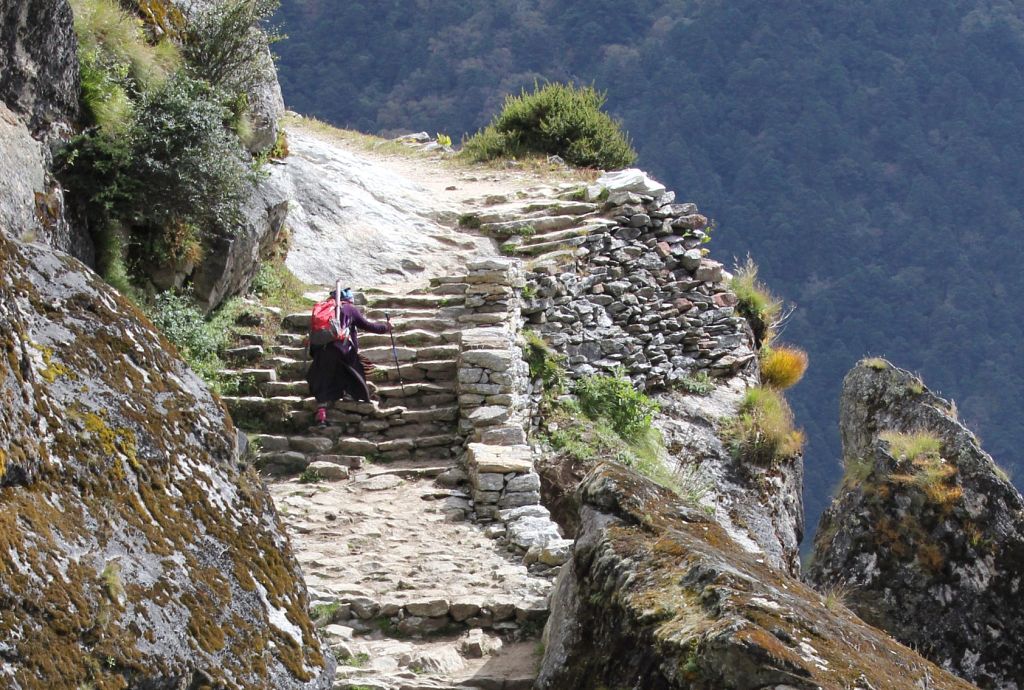In Praise of the Winding Road (1)

I vividly remember a senior year assignment when I was asked to write an essay in praise of laziness. It felt like such a paradoxical request coming from a school system that so single-mindedly rewarded effort. It was also a breath of fresh air.
In the BC era (that is, before coronavirus), we lived in a world that was growing ever more interconnected and tightly coupled. Writing this series of blogs in praise of the winding road – of the extra distance we intentionally travel- would have felt equally paradoxical. Today, it doesn’t. But perhaps, like me, you will still experience it as a breath of fresh air.
Let me first frame the theme. Starting in the late 18th century, first by design and later in good measure through sheer habit, we have tended to organize our lives at every level – from the personal to the global – in ways that minimize waste and inefficiency. In such a worldview, distance – understood broadly as any deviation from the shortest, fastest, least costly path from A to B – is the enemy. It slows down response times, it constricts throughput, it complicates decision making, it wastes resources, it limits options and so on.
Now, the Covid-19 pandemic has restored merit to distance – by keeping physically apart, we stay safe individually and we “flatten the curve” collectively. Could it be that distance metaphorically defined as choosing the winding road and deliberately deviating from the optimum – e.g. pauses, delays, safety margins, inefficiencies, digressions, imperfections, oblique approaches, redundancies, etc. has a lot more to offer as we start imagining new norms for the post-Covid-19 world?
In this series of blogs, I muse about that: In what ways might distance be a virtue that I/you/we want to lean more into across all levels of the entangled systems in which our lives unfold?
In the first blog, I will focus on the personal level. The next couple of blogs will touch on the interpersonal; the organizational; the institutional and the infrastructural.
1. The personal level: Awareness of myself in action
There is real benefit to myself and to others with a stake in my life if I rarely question my motives and my beliefs. I will be predictable and dependable. I will experience myself as at peace, untortured. Provided I have the right mindset, or provided that that mindset is inculcated in me, I can be counted on to ‘do my piece’ and execute reliably. The shadow of that absence of self-awareness is that I am at risk of being manipulated into conformity or compliance.
If I step up on the balcony of my inner life (examining my motives and beliefs from a distance), I will expand my range of behavioral options in the moment of action. I will be less predictable, and less dependable. I will be harder to condition from the outside. I will experience myself as having agency over my conduct. When faced with unscripted situations, complex or chaotic, I will have more range to respond effectively. I might actually be able to thrive.
Given that the boundary between complexity and chaos is likely to be our habitat in this next world, who would not want some of that?
So, what might you do to get going now?
- You might want to take daily time for a mindfulness practice. Mindfulness is a wonderful way to kindle and train your capacity for self-awareness.
- You might examine some of our long-held assumptions, beliefs and values using a process such as Kegan & Lahey’s Immunity to Change.
- Together, we might make the process of cultivating self-awareness in action a vital part of the curriculum of schools, universities and workplaces. For example, I personally draw inspiration from Books@Work, an organization that runs an admirable workplace-based program that builds awareness of self and others across hierarchical lines.
In the next blogs, I will turn to the merit of distance in the interpersonal and the organizational realms.
So true that while mathematics teaches us that the straight line is the shortest connection between two points, life teaches us that the winding road is the one that often gets you there faster and more successfully. And so spot on that Books@Work does exactly that: it makes you stop, reflect more broadly on life and work and gives you the non-obvious insights that often allow you to achieve the unachievable.